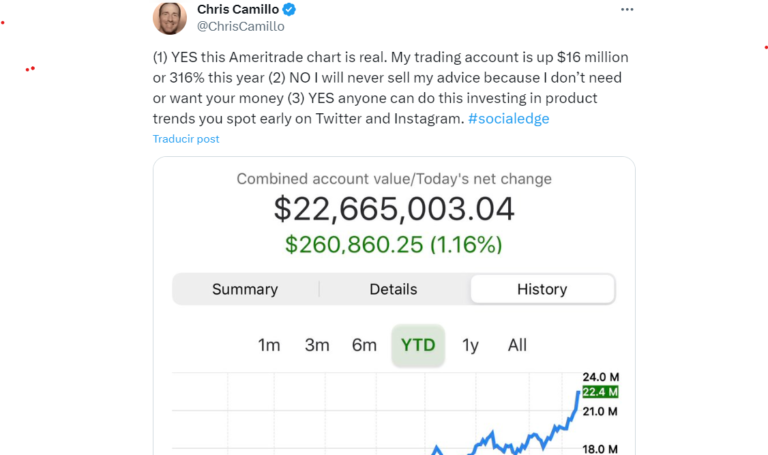In traditional finance it is usually called dumb money to the retail investors.
Referring to all the people who are not investment or financial pros. People that work in all sort of different things but are actively investing are basically called “dumb money”
The reason for this is that professional investors, Hedge funds, institutions, are the “Smart money”, this to point that as they have more “knowledge” in terms not just of financial literacy but also very “timely” information about a wide array of ecnonomic data, such as a CEO doing this, or 2 Billion hedge fund manager shorting Oil, etc.
Basically saying we know what and when to buy and sell, while the “dumb money” are the ones left with the losses.
To this example, there was one hedge fund manager monitoring the images from a satelite to see the amount of oil barrels, so he could put a trade on the oil price movement.
Compare that to the average retail investor, trying to use “technical analysis” or reading a financial statement to take the buy or sell decision, while the retail investor thinks everyone has the same information available, the reality is the hedge fund manager have the “edge”
Lets take another example, when there is a huge movement in a stock to the upside, usually the people selling at the top are the “smart money” while retail/dumb money is caught up in the trend, wanting to buy when the prices already skyrocketed.
Smart money vs dumb money
So is it just like that ? We just have no chance to compete against the people in Wall Street?
Well, yes and no.
Let me explain it to you, by traditional metrics like, reading financial statements, figuring out when to buy a stock, which stock to buy, build and hedge a “sophisticated” portfolio ( whatever that means), then probably no.
BUT…
Here comes the interesting part of it, “dumb money” actually have some advantages over traditional finance that are not so obvious at first glance.
Dumb Money TV
This is a YouTube channel founded by 3 friends who are called themselves “dumb money”. Now don´t be fooled by the name, this guys are very intelligent when it comes to money. They managed to turn 20 K into around 20 million dollars in a couple of years. You tell me.
One of them called Chris Camillo, actually wrote a book on how he did it, it was a fun easy read. Its called “Laughing at Wall Street” – If you are interested.
Basically he goes on to explain how normally all of this investment funds and financial institutions have more financial and investment “data” BUT he and all retail had more social data!
What does he mean by that?
Social Arbitrage Strategy!
He went on to just observe what people were talking about, what they were sharing on social media platforms, and then see if he could place a trade on that.
That is what he called social arbitrage, he used the trends on Instagram, Twitter, and now more recently TikTok, in order to spot products, and see if he could profit with some kind of trade via the stock market.
By doing this he figured, he would frontrun any financial data or information that Wall Street could get. Because he was there monitoring trends in “real” time, not after some financial results was made “public”.

The Popeyes Sandwich!
Let’s take real example he did a while back.
He started to hear a lot of people talking about the new Popeyes chicken sandwich, a lot of mention of it on social media.
So, he then would go on and make more research on it. Then figure he could make a trade through the company that owns Popeyes and Burger King, Restaurant Brands International. QSR 0.00%↑
He figured, let’s go buy some CALL options on the stock. (Basically, leverage on the stock)
Now choosing the expiration date, how did his thought process worked on that?
He analyzed the timeline from the launch of the sandwich and when the financial results from it would be reported on the next quarterly earnings report, so he chose an expiration date after that.
His thesis was that the earnings would be better than expected by the wall street analysts as they as usual were doing their estimates on past trends and extrapolating to the future, but he was using his social arbitrage strategy to gain an edge.
Then when the earnings come out better than expected the stock would surge a high percentage making his trade a lot of Moolah$!
That is his social arb strategy he uses all the time to buy and sell stocks and make a higher profit than through traditional methods.
If it is that easy, why aren’t all people millionaires? Well first, it sounds simple but is not easy, this guy has the stomach for risk, not all people have that.
In the example above, although he had a very high conviction on it, and was a pretty good idea. There are always factors for risk.
For example, in this one he miscalculated the impact that the chicken sandwich would have on the income, compared with the full revenue the company does, the chicken sandwich did not move the needle at all.
So, what happened? The stock didn’t do much, he ended up losing almost all of the money on that trade, as he did not buy the stock, he bought Call options, which do expire. He lost around $600,000 usd.
Dumb Money TV Strategies
In their YouTube channel the three of them, Dave, Chris, Jordan, are constantly sharing investment ideas, investing mistakes etc.
They recently did one where they shared what worked for them to get out of their 9-5 jobs and be able to invest fulltime. Although all of them use the “Social Arb Strategy”. Each one of them have a also unique strategies and risk tolerance.
You should not take any of this as investment advice, or just copying what they do. Use it to learn and take the best, so then you can design your own investing approach.
Learning from Dave, I would argue the risk tolerance of Dave is in between Chris and Jordan. He has his own stock portfolio which has companies like Amazon and Tesla. He also does social arb trades.
He said the one strategy that helped him the most was “3X Leveraged ETFs.”
These are Funds that as the name implies are leveraged which means the returns are amplified by “3x” most argue that the risk are the fees they charge, the downside is also amplified, Dave knows all of that, but he said he tried it, he holds the leveraged ETFs for years, and found it to be incredibly strong.
Learning from Chris, He is by a wide margin the most aggressive investor of the three, he likes to trade using options and margin, both being leverage, just in different ways.
He said the one strategy that helped him the most was building a “risk account.”
This account is meant to be built by small incremental savings over time, avoid spending on things you may not really need, and thinking of every dollar as a potential “$10-100 usd” so that way you get more motivated to save those “little” amounts.
He argued that as the risk account is meant to be for aggressive growth, that money shouldn’t be of a concern if lost. That mindset will allow you to be take more risk.
Learning from Jordan, he is by far IMO the most conservative of them all, while Chris likes to have almost $0 cash using margin if needed and being totally invested.
Jordan mentioned once that he had around 10 years’ worth of his life expenses in cash…
Let that sink in.
He is risky in an asymmetric way, how?
Well for instance he likes to invest in start-ups which is a very high-risk type of investment with a very high failure rate, around 90%.
But at the same time he has 10 years’ worth of cash, probably invested in bonds yielding 4% a year.
Making as Nassim Taleb would say kind of a barbell strategy with his investments.
Jordan mentioned for him also the strategy was to be able to save and build that risky account.
Dumb Money
As you can see the name “dumb money” for these guys was just a funny way to play with how retail investors are known in the professional field, but they are far from dumb.
I really appreciate the effort and time they have dedicated to share what they know and have learned in the past couple of years.
Probably not many people will be able to replicate the awesome results, but for sure they can achieve great results by dedicating a little time to learn, experiment, and putting some money on the line.
There are a lot of ways to make money in the markets and this “dumb money” guys strategy is just a very interesting and fun one for me, i hope you enjoyed it and get inspired as much as i did by writing this post.
Have a great investing journey!
Zifush.

